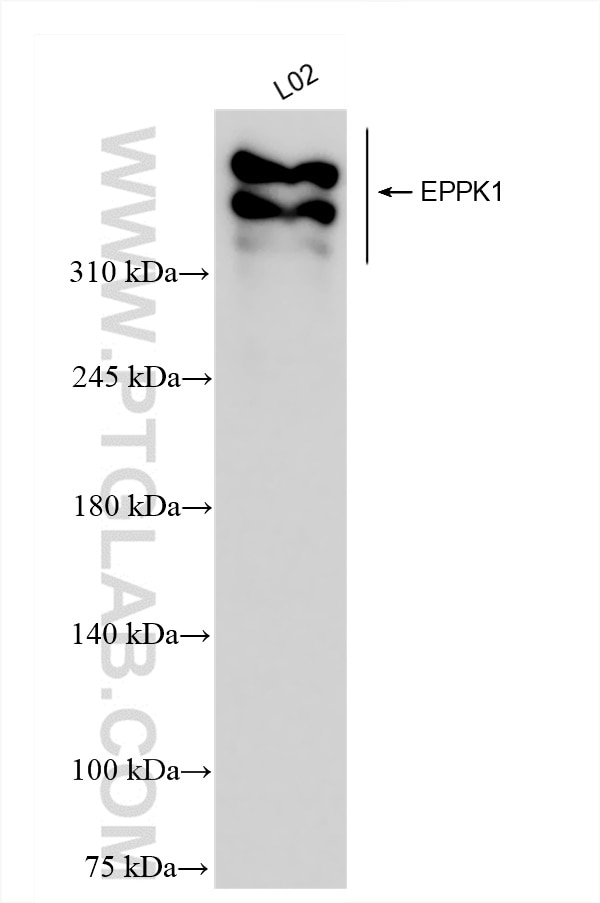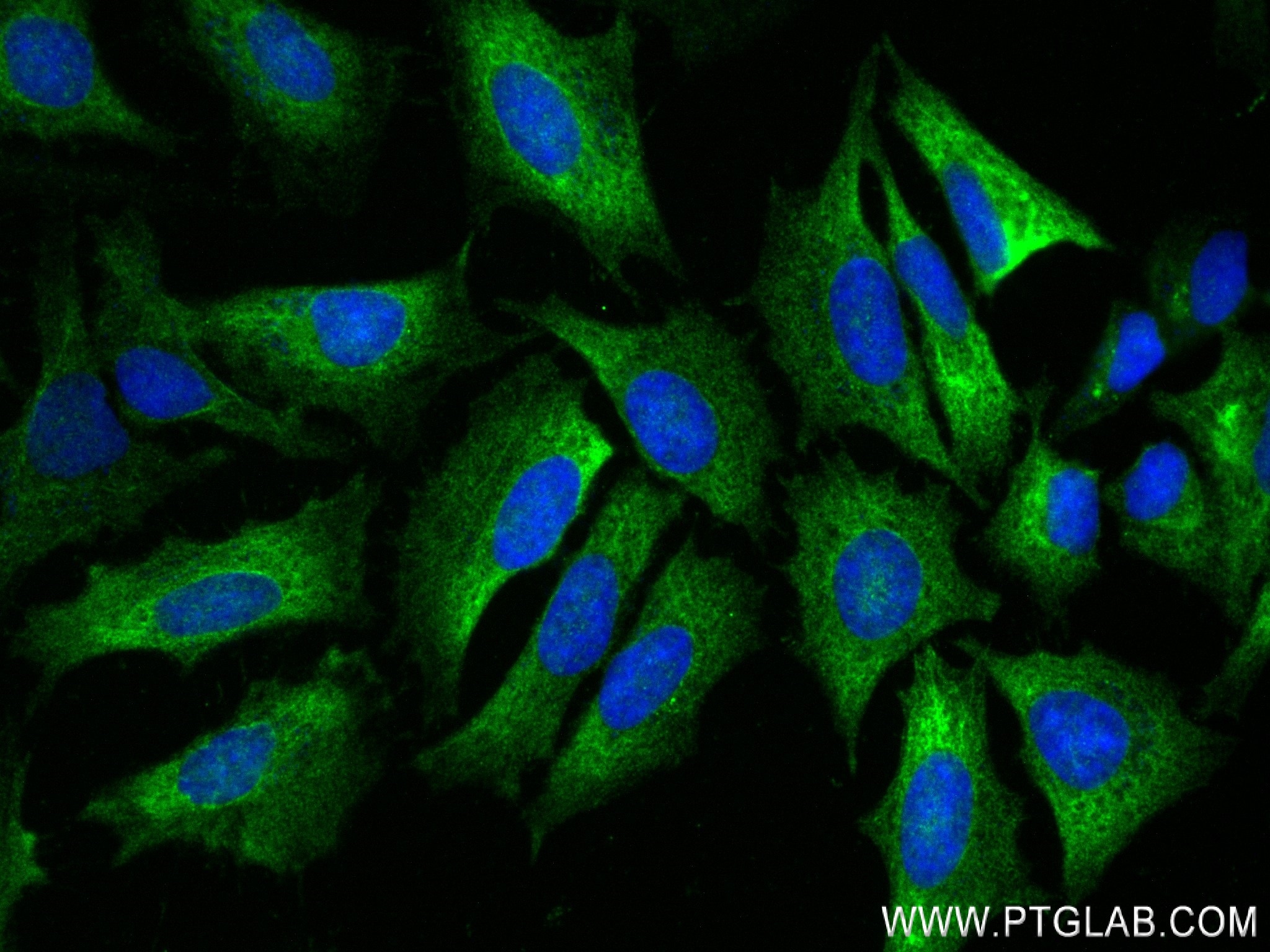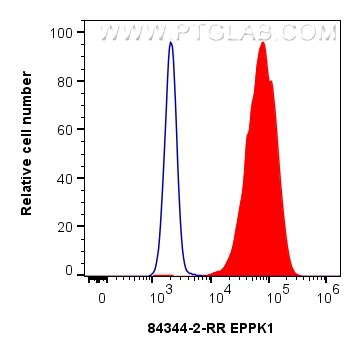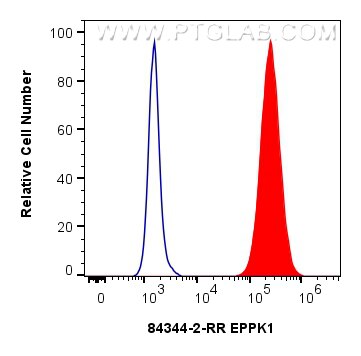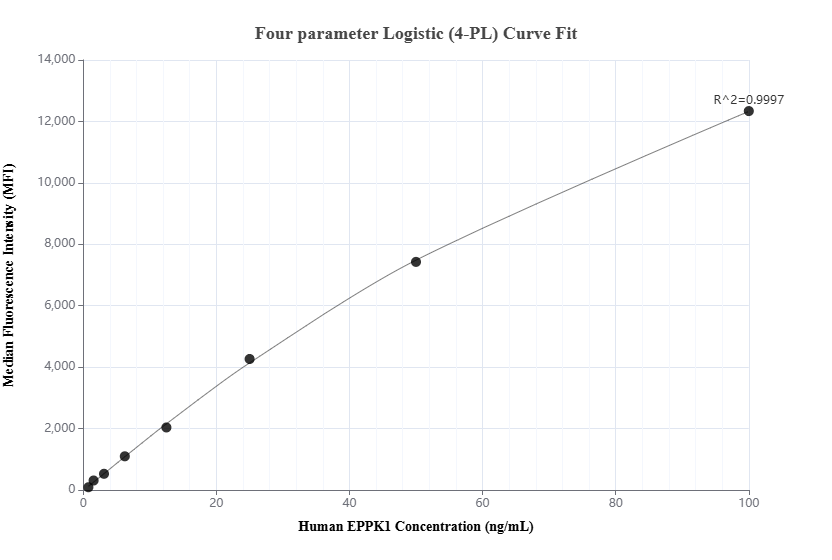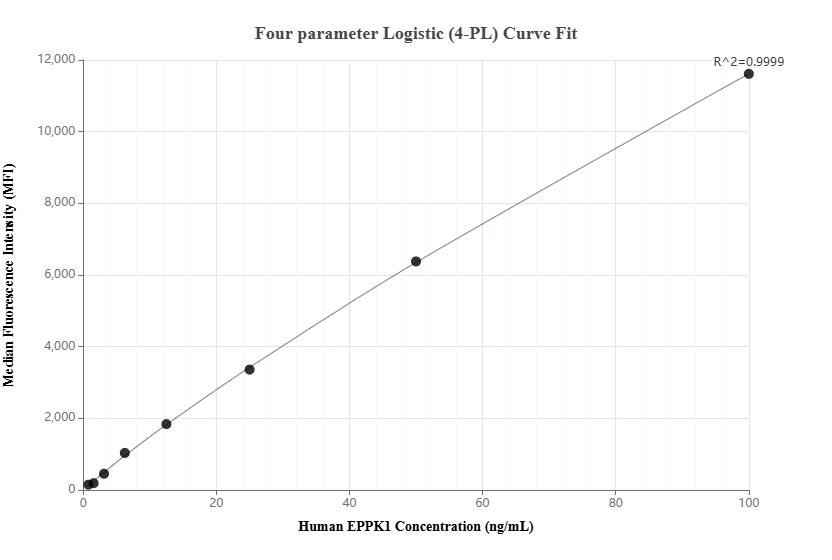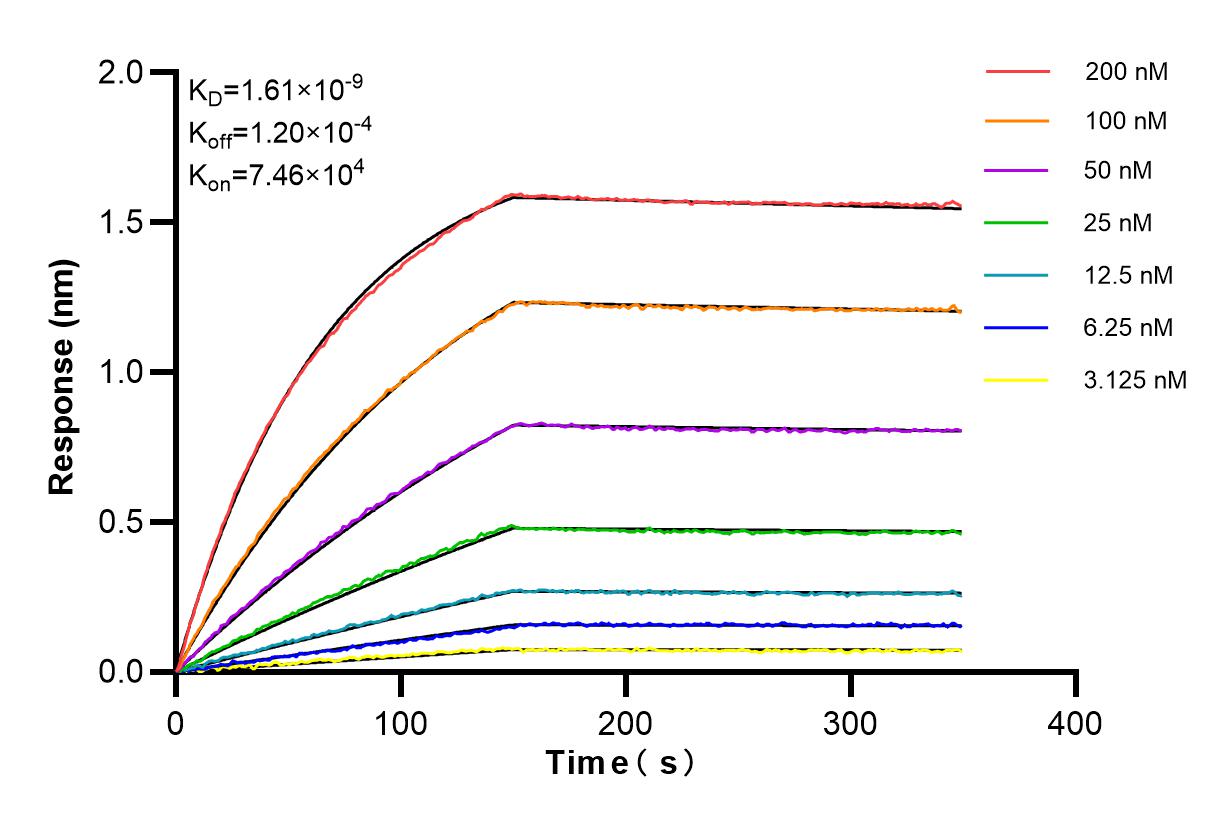Product Information
84344-2-PBS targets EPPK1 as part of a matched antibody pair:
MP01220-1: 84344-3-PBS capture and 84344-2-PBS detection (validated in Cytometric bead array)
MP01220-2: 84344-4-PBS capture and 84344-2-PBS detection (validated in Cytometric bead array)
Unconjugated rabbit recombinant monoclonal antibody in PBS only (BSA and azide free) storage buffer at a concentration of 1 mg/mL, ready for conjugation. Created using Proteintech’s proprietary in-house recombinant technology. Recombinant production enables unrivalled batch-to-batch consistency, easy scale-up, and future security of supply.
This conjugation ready format makes antibodies ideal for use in many applications including: ELISAs, multiplex assays requiring matched pairs, mass cytometry, and multiplex imaging applications.Antibody use should be optimized by the end user for each application and assay.
| Tested Reactivity | human |
| Host / Isotype | Rabbit / IgG |
| Class | Recombinant |
| Type | Antibody |
| Immunogen |
CatNo: Ag35749 Product name: Recombinant human EPPK1 protein Source: e coli.-derived, PGEX-4T Tag: GST Domain: 1400-1570 aa of NM_031308.3 Sequence: NKFFFDPSARDQVTYQQLRERCVCDSETGLLLLPLPSDTVLEVDDHTAVALRAMKVPVSTGRFKGCSVSLWDLLLSEYVGADKRRELVALCRSGRAAALRQVVSAVTTLVEAAERQPLQATFRGLRKQVSARDLFRAQLISRKTLDELSQGTTTVKEVAEMDSVKRSLEGG Predict reactive species |
| Full Name | epiplakin 1 |
| Calculated Molecular Weight | 555 kDa |
| Observed Molecular Weight | 500-600 kDa |
| GenBank Accession Number | NM_031308.3 |
| Gene Symbol | EPPK1 |
| Gene ID (NCBI) | 83481 |
| Conjugate | Unconjugated |
| Form | Liquid |
| Purification Method | Protein A purification |
| UNIPROT ID | P58107 |
| Storage Buffer | PBS only, pH 7.3. |
| Storage Conditions | Store at -80°C. |
Background Information
Epplakin 1 (EPPK1), belonging to the plakin family, is involved in connecting intermediate filaments and regulating their reorganization in stress response. Studies have shown that EPPK1 is involved in the progression of various cancers, such as liver cancer, cervical cancer, and bladder urothelial carcinoma.

